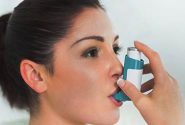(HealthDay News) — (Tasrir) — In an open letter to state and local officials, the agency urged more testing of herds that produce raw milk for sale and recommended that states use their regulatory powers to stop the sale of raw milk where dairy herds have tested positive.
On Thursday, Minnesota became the 10th state to report an infected herd. According to the U.S. Department of Agriculture, 82 U.S. herds have now tested positive for the H5N1 avian virus.
The FDA doesn’t allow the sale of raw milk across state lines, but several states allow the sale of raw milk within their borders, with varying requirements, the agency noted.
Raw milk can carry high levels of the H5N1 bird flu virus because it appears to infect cows through their udders. While it isn’t yet clear whether people can get bird flu by drinking contaminated milk, cats living on farms with infected cows have died after consuming raw milk and three dairy workers exposed to it have been infected.
“Given the current and potential future risks that HPAI H5N1 virus poses to our nation’s public health, as well as the health of our nation’s food-producing animals and wildlife, it is important to work together to minimize the additional exposure of humans and other animal species,” Dr. Don Prater, who is leading the FDA’s H5N1 response, told CNN.
Along with stronger warnings about the dangers of raw milk, the FDA is recommending that any raw milk or raw milk products from exposed cattle that are fed to calves or any other animals be heat-treated or pasteurized, the FDA said.
The agency added that it would soon share new research and data on both bird flu virus in raw milk and raw milk products.

















